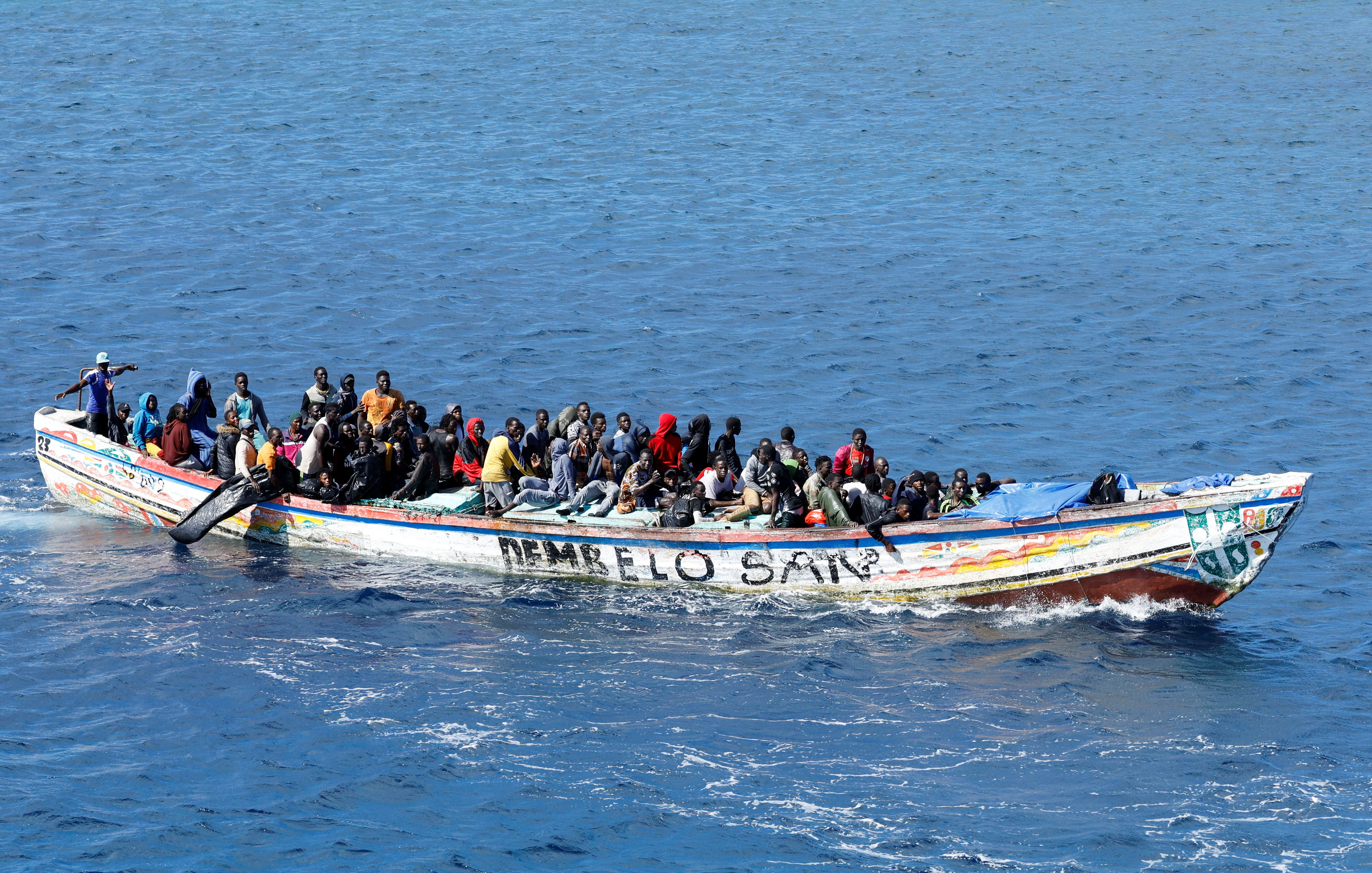
A migrant boat in Spain’s Canary Islands capsizes, leaving at least 9 dead and 48 missing
Rescue authorities reported that early on Saturday, in the vicinity of the Spanish island of El Hierro, a boat carrying nine migrants overturned, leaving 48 people missing. This might perhaps be the bloodiest occurrence involving such a voyage to the Canary Islands in thirty years.
Of the 84 migrants attempting to reach the Spanish coast, the emergency services were able to save 27, they continued.
The migrants, according to Spanish authorities, were from Senegal, Mauritania, and Mali.
The boat, which was around four miles east of El Hierro, called the rescue squad just after midnight local time. They said that during the rescue, it sank.
“During the rescue, every migrant on board concentrated on one side of the boat, causing it to capsize. The chief of Spain’s maritime rescue services, Manuel Barroso, stated that “everyone fell into the sea.”
He continued, saying that wind and little visibility made the rescue very challenging.
Emergency personnel are still looking for the remaining nine bodies, of which nine have been recovered.
During the night, three more boats with 208 migrants on board made it to the Canary Islands.
This month, local officials reported that a fresh wave of migrants has arrived in the Atlantic Ocean off the coast of Western Africa, thanks to calm seas and mild breezes typical of late summer.
According to figures from Frontex, the border agency of the European Union, the number of migrants crossing the route from Africa to the islands, home to almost 2.2 million people, has increased by 154% this year, with 21,620 individuals having done so in the first seven months.
Emergency personnel are still looking for the remaining nine bodies, of which nine have been recovered.
During the night, three more boats with 208 migrants on board made it to the Canary Islands.
This month, local officials reported that a fresh wave of migrants has arrived in the Atlantic Ocean off the coast of Western Africa, thanks to calm seas and mild breezes typical of late summer.
According to figures from Frontex, the border agency of the European Union, the number of migrants crossing the route from Africa to the islands, home to almost 2.2 million people, has increased by 154% this year, with 21,620 individuals having done so in the first seven months.
All Categories
Recent Posts
Tags
+13162306000
zoneyetu@yahoo.com



